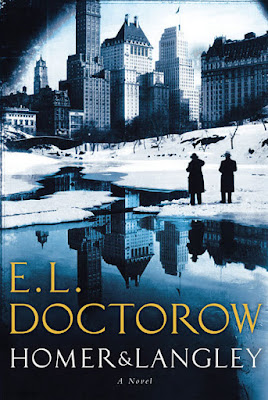Sir Gawain and the Green Knight, Pearl & Sir Orfeo are three poems translated from
Middle English by J.R.R. Tolkien. The first two were discovered contained in the
same manuscript, along with two other poems, written in the same hand, around the year 1400, according to the introduction, edited by
Christopher Tolkien from a number of sources which original with his father, including notes, transcripts from broadcast interviews, etc.
Sir Orfeo is contained in three extant manuscripts, and the one Tolkien used is dated to the 1330s, inscribed, probably in London. The original authors are unknown.
Tolkien worked on the translations a number of times from the1920s up through at lest the 1950s according to the preface by Christopher Tolkien, and in some case in collaboration with other experts in the field. In some cases, Christopher found multiple versions, and made an effort to use the most recent updated forms for this publication. The copyright is dated 1975 and held by Tolkien's long time publisher, George Allen & Unwin, Ltd. and published in 1980 by Ballantine Books, of New York.
The trickiest part of the translations, according to the front matter, is the rhythm, not the strict iambic metrical foot used in other forms, such as Shakespeare, but a more loose rhythm of stressed and less stressed syllables, more closely matching natural speech, combined with alliterative sounds within many of the lines, such as this example given in the Appendix (also credited to J.R.R. Tolkien, and edited by Christopher):
Tirius went to Tuscany and towns founded*
In this line, I've bolded the stressed syllables in red, and obviously, Tirius, Tuscany and Towns alliterate. I've added the break in the line, as the example in the aforementioned appendix did, to illustrate that each line is composed of two chunks, according to Tolkien.
The trick is apparently finding the words in moderns English that both tell the same story, give the same intended meaning, maintain the meter and rhythm, and don't damage the structure of the poem or its speech patterns so much that it is no longer a worthy representation of the original.
Sir Gawain and the Green Knight is the longest poem, at about 80 pages, Pearl is about 33 pages, and Sir Orfeo is shortest at about 15 pages. Each seems designed to be spoken aloud, as one assumes that not many in the 1300s and 1400s could read, and they each seems to be focused on a story that is both exciting, and includes lessons on life and strong moral. They each extol the glory of God and being good, and the rewards that come from keeping both of those aspirations close at heart. Each also has a sprinkling of magic, often dressed as dream or phantasm brought on by sleep, drink, or love. All of the ingredients for that which Tolkien was trying to restore to England, its lost native mythology, which he imagined was as rich and diverse as the Greek, Roman, Egyptian, or any other ancient civilization that didn't suffer the losses brought on by England's northern, damp climate, which is so hostile to things like old parchment manuscripts.
What I found most fun was the similarities in some of the themes from the adventures themselves that were clearly the inspirations,** at least in part, for some of Tolkien's fiction. That itself, is worth the price of admission.
* Sir Gawain, stanza 1
** Tolkien fans out there will have heard the comparisons between The Lord of the Rings and Wagner's Ring Cycle (Der Ring des Nibelungen) which Tolkien denied, and still many try to say that it is at least partially inspired by Wagner, regardless of the author's dismissal. But Wagner was himself inspired by an old Middle High German poem from around 1200, called
Nibelungenlied (The Song of the Nibelungs), which is in turn, based on oral traditions that likely
go back to Old Norse sources, which Tolkien did study. In his 2011 essay on this comparison, Jamie McGregor provides a quote from Tom Shippey's work on Tolkien, indicating that Tolkien has a distinct dislike for Wagner (and other authors, including Shakespeare) and felt that they "had got something very important, not quite right." That, to me, explains why the similarities are present, i.e., they used the same source material, but Tolkien's inspiration, and what he took from the texts and traditions he studied, could be his own.***
*** One of Tolkien's friends--and a member of the Inklings, which they founded with their literary friends--C.S. Lewis, was described by Roberts Giddings, again, according to McGregor's essay, noted above, as a "rabid Wagnerite" and in his mind the source of the Wagner "taint" in Tolkien's work. Not having read Giddings work myself, I can't tell you if that theory is supported by any evidence, but in absence of that, I'll only add that it may be that Lewis saw these associations himself, and may have even brought them up to Tolkien himself, and if he did, I assume that Tolkien's response was the same to Lewis as it was to more public comparisons, altho, I also assume, perhaps more pointed.



















